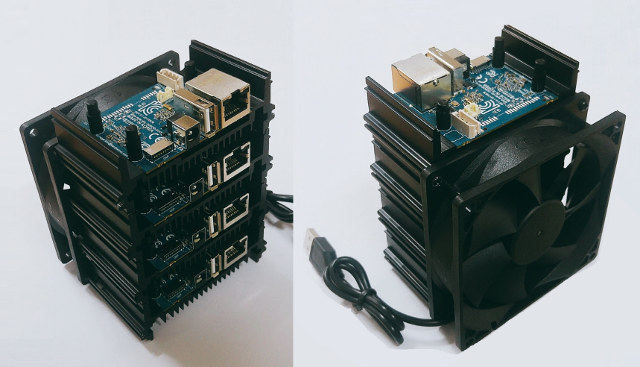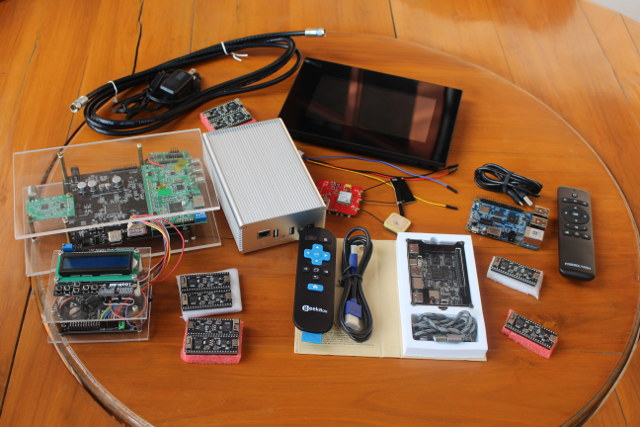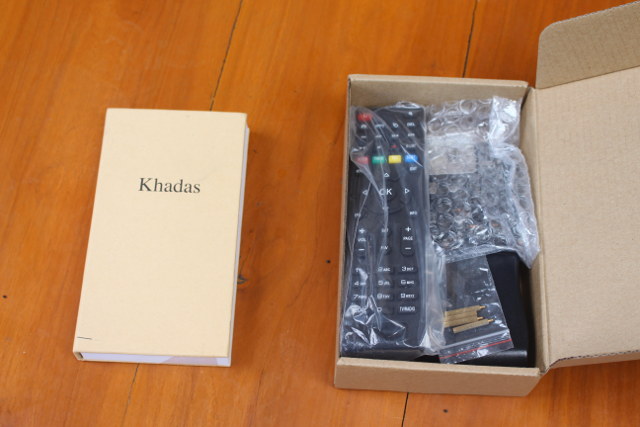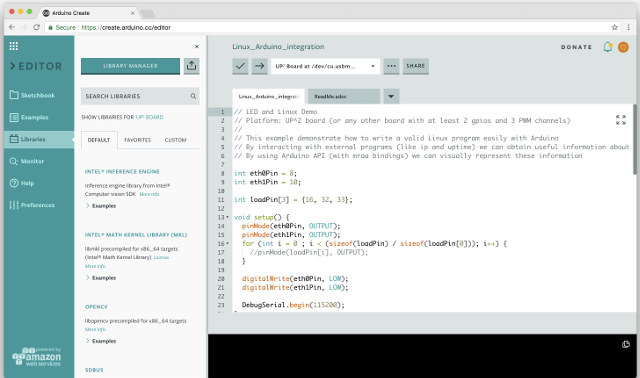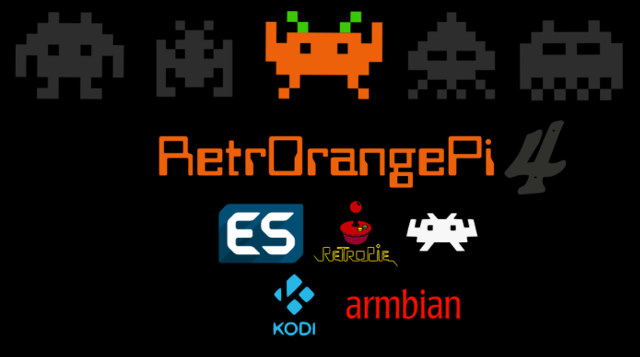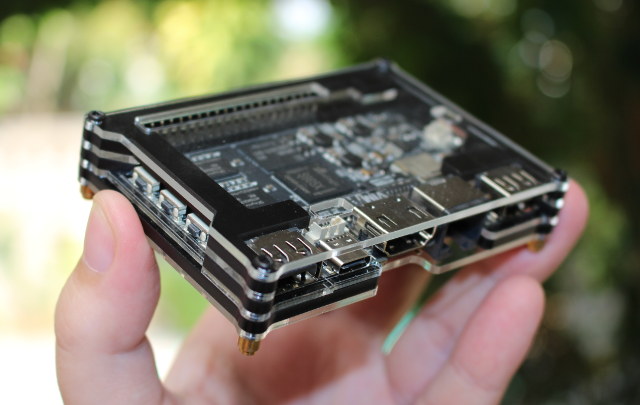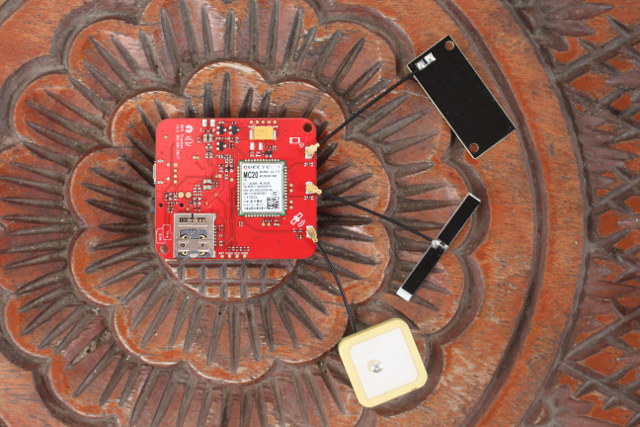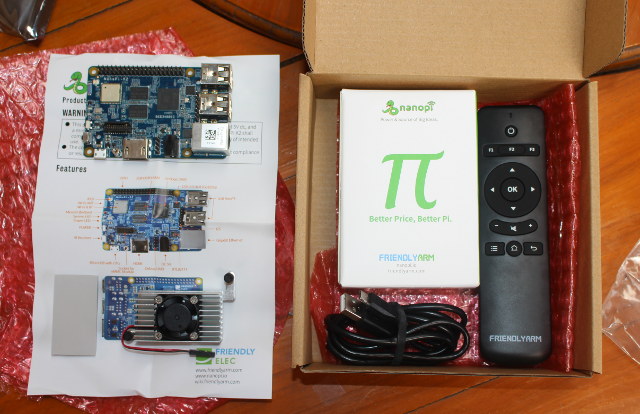Hardkernel teased us with ODROID HC1 Home Cloud server, and ODROID MC1 cluster last August with both solutions based on a cost down version of ODROID-XU4 board powered by Samsung Exynos 5422 octa-core Cortex-A15/A7 processor. ODROID-HC1 Home Cloud server was launched shortly after in September for $49. It took a little longer than expected for the cluster to launch, but ODROID-MC1 (My Cluster One) is finally here with four ODROID-XU4S boards, and a metal case with a cooling fan. The solution is sold for 264,000 Wons in South Korea, and $220 to the rest of the world. ODROID-MC1 cluster specifications: Four ODROID-XU4S boards with SoC – Samsung Exynos 5422 quad core ARM Cortex-A15 @ 2.0GHz quad core ARM Cortex-A7 @ 1.4GHz with Mali-T628 MP6 GPU supporting OpenGL ES 3.0 / 2.0 / 1.1 and OpenCL 1.1 Full profile System Memory – 2GB LPDDR3 RAM PoP Network Connectivity – 10/100/1000Mbps Ethernet […]
Giveaway Week Winners – November 2017
Like every year, I’ve organized a giveaway week to send some of the items I’ve reviewed in the past year or so. There was a good mix of devices this year starting with a mini Linux NAS kit, following by some ESP32 boards, and Amlogic development boards among others. The results are in, and instead of 10 winners, I actually have 11 winners due a “timing issue”, and to make for one missing ESP32 board, a LinkIt Smart 7688 Duo board was also given away. While it started strongly for Eastern Europe, We have winners from 3 continents this year: NanoPi NEO2 NAS Kit – Hap Hapablap, Serbia Muses Beta DVB Encoder and Modulator Board – Luka, Slovenia ESP32 PICO Kit v3 boards (5 Winners): Andrius Kurtinaitis, Lithuania (2x ESP32 boards) Kebab, Turkey (2x ESP32 boards) Zoobab, Belgium (2x ESP32 boards) Sollie, Germany (2x ESP32 boards) BobR, USA (1x ESP32 […]
Khadas VIM2 Board Review – Part 1: Unboxing and Dual Tuner Board
Khadas VIM2 board is the successor of Khadas VIM board, replacing Amlogic S905X by a slightly more powerful Amlogic S912, but that’s the connectivity features that really makes it stand apart from the first version with Gigabit Ethernet, 802.11ac WiFi and Bluetooth 4.2. It also exposes a few extra I/Os via pogopins. and among the three variants, two comes with 3GB RAM, and up to 64 GB storage. The company (Shenzhen Wesion) sent me one of the boards, together with various accessories, and I’ll start the review of the board by checking out the hardware and accessories, before testing the board further in another post. I received two packages: one book-like with Khadas marked on top, and another one with various other items. The first package includes the board, a USB to USB type C cable, and a card showing the main specifications, and supported operating systems: Ubuntu 16.04, Android […]
Arduino Create Adds Support for Linux Development Boards (based on Intel processors for now)
Most people are used to program Arduino compatible boards with the Arduino IDE that they’ve installed in their Windows/Linux/Mac OS computer, and manage everything locally. But Arduino introduced Arduino Create last year, which includes Arduino Web Editor allowing you to perform the same tasks in your web browser, and save your files in the cloud. The company has now added Linux support to Arduino Create so that users can now program their Linux devices as if they were regular Arduino boards, and easily deploy IoT applications with integrated cloud services. The initial release has been sponsored by Intel, and currently supports X86/X86_64 boards, but other hardware architectures will be supported in the coming month. In the meantime, AAEON UP2 board is the best platform to get started, as a complete getting started guide is available for the platform. But other mini PCs such as Intel NUC, Dell Wyse, Gigabyte GB-BXT are […]
RetrOrangePi 4.0 Released
RetrOrangePi is a retro gaming & media center firmware based on Armbian Debian image and working on Allwinner H3/H2+ based Orange Pi boards, Banana Pi M2+, and NanoPi M1, as well as Beelink X2 TV Box. Right at the end of last year, I reviewed RetrOrangePi 3.0 on Orange Pi One board to which I connected Mars G01 gamepad, and I could play some games like Wolfenstein 3D and Quake, and watch videos on OpenELEC/Kodi 16. The firmware also comes with various emulators, but you’d have to load the ROMs yourself due to intellectual property / license issues. The developers have now released RetrOrangePi 4.0. RetrOrangePi 4.0 changelog: Latest Armbian v5.32 (Debian Jessie kernel 3.4.113) RetroPie-Setup v4.3.3 (unofficial fork, upgradeable) New RetrOrangePi repository for easy updates and fixes EmulationStation v2.6.5 with video and game collection support, Desktop/OpenELEC shorcuts from main menu New ROPi “Attract-Mode”-like theme (based on Cosmos theme) Retroarch […]
Giveaway Week – Khadas Vim Pro Development Board
For the final day of this giveaway week, I’ll send Khadas Vim Pro development board to a new home. The board is powered by an Amlogic S905X processor coupled with 2GB RAM and 16GB storage, features 10/100M Ethernet and 802.11ac WiFi, and support 4K video playback and output via its HDMI 2.0a port. The board supports various operating systems such as Android, LibreELEC, dual boot Android/Ubuntu, etc.. and I wrote a Ubuntu review / getting started guide for the board in February. At the time, the image was still “raw” with many steps to perform by the users, and part of the documentation needing to be worked on. But the company (Szwesion) and members of the community are usually active in resolving user issues on the forums. I’ll give away the kit I’ve received with the board in an acrylic case, a USB to USB type C cable for power, […]
Giveaway Week – Wio GPS Tracker Board
It’s Friday, and the fifth day of giveaway week on CNX Software. Today, I’ll be giving away Wio Tracker, an Arduino compatible board based on Microchip / Atmel SAMD21 ARM Cortex M0 MCU with GPS, Bluetooth, 2G GSM/GPRS connectivity. My review of the board was rather negative, as I only managed to make Bluetooth 3.0 work while following the documentation as it was back in May. Since then the documentation seems to have improved, and other people have been more successful than me, and made the blink LED, and GPS samples to work. This version of the board only support 2G, so make sure it is still supported in your region/country. To enter the draw simply leave a comment below. Other rules are as follows: Only one entry per contest. I will filter out entries with the same IP and/or email address. Contests are open for 48 hours starting at […]
Giveaway Week – NanoPi K2 Development Board
NanoPi K2 development board is powered by Amlogic S905 processor coupled with 2GB RAM, and follows Raspberry Pi 3 form factor, and I’ve got a K2 multimedia kit to give away courtesy of FriendlyELEC who sent me one a few months ago. The kit includes the board, a quick start guide, a fansink, a USB cable for power, an acrylic case (not shown above), and an IR remote control. I got it when I asked for NanoPi NAS Kit, and sadly I did not find the time to test it, but the company provides both Android 5.1 and Ubuntu 16.04.2 images for the board, and Armbian also released an experimental Ubuntu server image with mainline kernel, and an Ubuntu desktop “testing” image with legacy Linux. To enter the draw simply leave a comment below. Other rules are as follows: Only one entry per contest. I will filter out entries with […]


